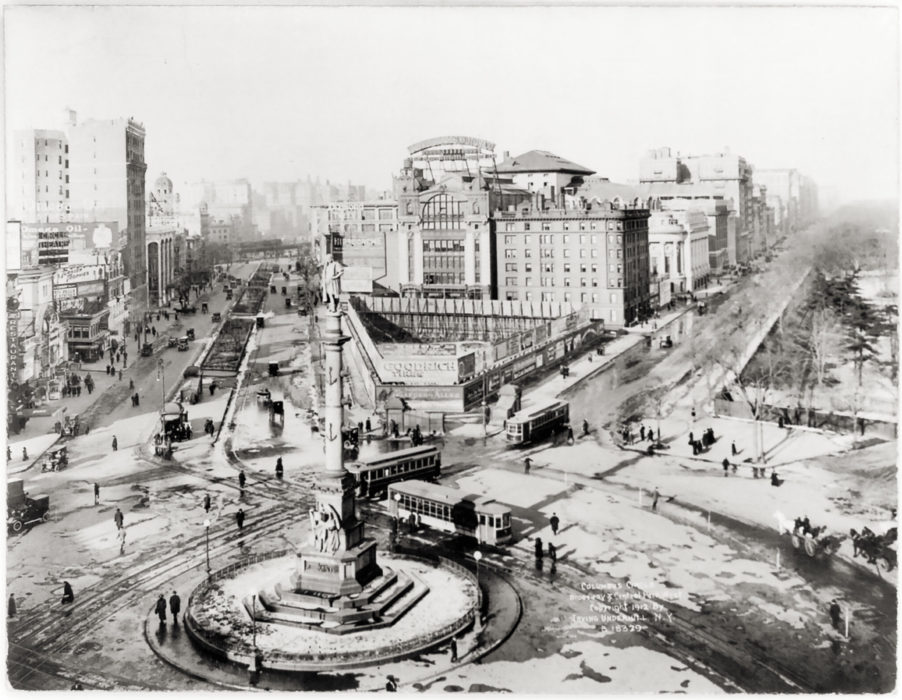IF YOU FIRST SAW ‘Abdu’l-Bahá at the Hotel Ansonia, on Broadway at 73rd Street, you could be forgiven if you left with a superficial first impression.
The Ansonia was the most opulent hotel in New York. Its owner, W. E. D. Stokes, declined to let anything like good taste restrain the glitz he built into it. They changed the towels, napkins, table linen, soap, and stationery three times a day. Live seals inhabited a massive fountain in the main lobby. Pneumatic tubes whisked messages between suites. During the summer, freezing brine flowed in steel pipes through the Ansonia’s three-foot thick masonry walls, making her the first air-conditioned building in the city. The world’s largest indoor swimming pool occupied the basement.
The early accounts of ‘Abdu’l-Bahá in New York’s newspapers show reporters struggling — and failing — to fit this visitor into the efficient and colorful stereotypes they had crafted during almost twenty years of portraying Easterners to American audiences. At first glance it was tempting to cast ‘Abdu’l-Bahá as yet another venerable “Wise Man Out of the East,” as Wendell Dodge had. “Of course nobody could be named Baha without having a beard,” joked Nixola Greeley-Smith, a columnist for the New York World, “and the eternal fitness of things has seen to it that this seventy-year-old head of a new religion had the regulation prophet’s whiskers.”

But by Saturday, April 13, ‘Abdu’l-Bahá’s third day in America, the city’s newsrooms had already started to detect the surprising awareness that this particular Eastern “prophet” displayed concerning the ways and means of modern Western society.
“His first words,” Dodge wrote, “were about the press.” Greeley-Smith’s editors pasted an incongruent headline above her full-page article: “ABDUL BAHA ABBAS, HEAD OF NEW RELIGION, BELIEVES IN WOMAN SUFFRAGE AND DIVORCE.” “He says he isn’t a prophet, by the way,” she wrote.
“It would be a pity,” the Chicago Post chimed in, “if this habitual discounting of Eastern faiths should mean that . . . the real worth of the venerable leader of that faith should be unappreciated. Nothing could be more inept, more discreditable to our own intelligence.” His movement, they wrote, “affords a splendid scale upon which to measure Western achievements.”
“A side idea of Abdul’s is that things modern are just as good as things ancient,” piped the Evening Mail’s editorial page. “This makes the white-bearded and snowy-turbaned leader exactly as much at home on Broadway, in New York, as he was in the lonely cell at Acre . . . .” He is, they wrote, “the strange anomaly of an oriental mystic who believes in woman suffrage and modern development.”
“He is worth his picture in the papers.”






